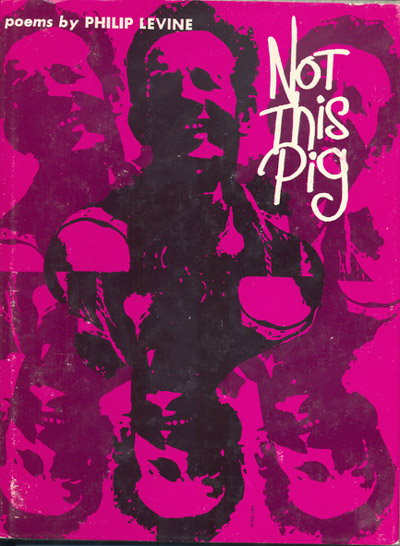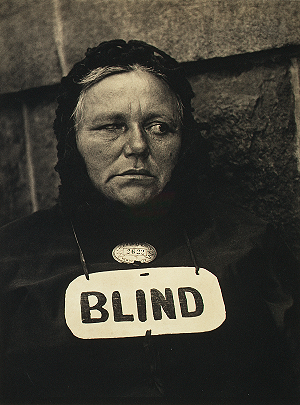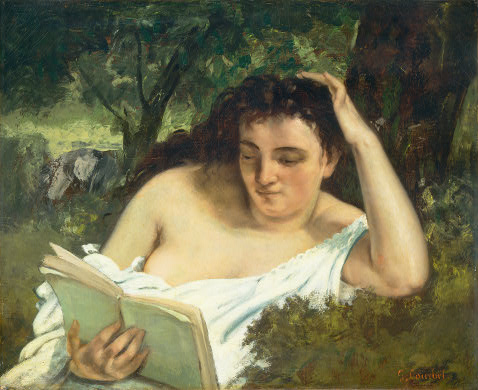![Poet, publisher and raconteur Jonathan Williams in 1985. [Photo: Roger Manley/NYT] Poet, publisher and raconteur Jonathan Williams in 1985. [Photo: Roger Manley/NYT]](../../../../images/2008/03/30/arts/30WILLIAMS.190.jpg) I had the privilege of hosting a dinner for some local poets and Jonathan Williams when he passed through our town in 1977. It had to have been potluck. None of us had much money then. Lentil soup was my culinary standby, along with fresh baguettes and cheap red wine from Yugoslavia. Jonathan regaled us with stories. He knew more writers and artists whom I wished to know than anyone I’ve ever met. The names in his NYT obituary give you an idea of his range. He could listen, too. When we talked in my tiny apartment kitchen as I did the dinner dishes, I remember thinking that his curiosity was genuine. You didn’t have to be famous to feel that you had his rapt attention.. Like my father, he could have talked with a barrel of rattlesnakes and walked away with another story to tell.
I had the privilege of hosting a dinner for some local poets and Jonathan Williams when he passed through our town in 1977. It had to have been potluck. None of us had much money then. Lentil soup was my culinary standby, along with fresh baguettes and cheap red wine from Yugoslavia. Jonathan regaled us with stories. He knew more writers and artists whom I wished to know than anyone I’ve ever met. The names in his NYT obituary give you an idea of his range. He could listen, too. When we talked in my tiny apartment kitchen as I did the dinner dishes, I remember thinking that his curiosity was genuine. You didn’t have to be famous to feel that you had his rapt attention.. Like my father, he could have talked with a barrel of rattlesnakes and walked away with another story to tell.
Updated April 4, 2008: Thanks to the efforts of Jeff Beam and a link on Ron Silliman’s blog, this post has been viewed by some folks who might know the answer to this: my connection to Jonathan Williams in 1977 was the poet Tim Reynolds, who lived in Yellow Springs at the time. Tim, are you out there? Does anyone know of Tim’s whereabouts?
Here is Jonathan’s NYT obituary by Dennis Hevesi:
Jonathan Williams, the founder of the Jargon Society, the small publishing house in the western mountains of North Carolina that for more than 50 years has introduced the works of unknown, little-known and soon-to-be-better-known writers, photographers and artists, died on March 16 in Highlands, N.C. He was 79 and lived and worked in Scaly Mountain, N.C.
The cause was pneumonia, said Thomas Meyer, Mr. Williams’s companion for more than 40 years.
Mr. Williams was himself a poet, essayist, photographer and graphic artist — talents he brought to the meticulously refined design of the approximately 100 books of avant-garde poetry and fiction, folk art and photography that Jargon has published since 1952.
“The face he presented to the world was of an irascible crank, a loose cannon, a gadfly,” Mr. Meyer said. “But as a publisher he was extraordinarily generous, always looking for the overlooked.”
Among the writers whose careers budded or bloomed through Mr. Williams’s attention were James Broughton, Basil Bunting, Robert Creeley, Robert Duncan, Denise Levertov, Paul Metcalf, Lorine Niedecker, Charles Olson and Louis Zukofsky. A book-length poem about the history of industrialization by the futurist Buckminster Fuller was published by Mr. Williams in 1962.
Hugh Kenner, a Canadian literary critic, once called Mr. Williams “the truffle hound of American poetry.”
In the early 1950s Mr. Williams turned down Allen Ginsberg’s “Howl,” which became a Beat Generation classic. He had no regrets. ”If Jargon had published it,” he told The New York Times in 1976, “it would have sold 300 copies.”
Artists and photographers whose work has been highlighted in Jargon books include Harry Callahan, R. B. Kitaj, Ralph Eugene Meatyard and Robert Rauschenberg. Mr. Rauschenberg, the acclaimed Pop artist, was barely known in 1952 when he painted swirling arrows to illustrate “The Dancer,” a poem by Joel Oppenheimer, published by Jargon.
Mr. Williams was an early champion of outsider art — works by those, mostly self-taught, who are outside the artistic establishment and away from art-world centers and might use materials like corrugated roofing, plywood or rug remnants.
“Although he lived in Manhattan and also San Francisco in the mid-50s, he felt there was this whole vibrant culture outside of cities,” Mr. Meyer said. Noted outsider artists shown in Jargon books include Thornton Dial and Howard Finster.
In his own writings and photographs, published by other small-press houses and in periodicals, Mr. Williams delved into his diversity of passions: long-distance hiking, Appalachian plant life, civil rights, vernacular variations, English parish churches, graveyards, Chinese porcelains, Japanese poetry, French haute cuisine, corn bread and barbecue.
His curmudgeonly affinity for the low-brow led, in 1986, to the publication by Jargon of Ernest Mickler’s “White Trash Cooking,” with recipes for delicacies like cooter pie, okra omelets and potato-chip sandwiches. New York publishers initially declined to buy the manuscript unless the author changed the title to something like “Poor Southern Cooking.” When Mr. Mickler refused, Mr. Williams gave him a $1,000 advance and ordered a modest 5,000-copy first printing. It was a best seller and was the only seriously profitable Jargon publication.
Jonathan Chamberlain Williams was born in Asheville, N.C., on March 8, 1929, the only child of Thomas and Georgette Chamberlain Williams. When he was a child, the family moved to Washington.
Mr. Williams dropped out of Princeton after his freshman year and began independently studying painting, etching, photography and book design. In 1951 he went to Black Mountain College, a hive of creativity outside Asheville, and came under the tutelage of the poet Charles Olson.
Mr. Olson urged students in his poetry class to go beyond the writing on the page. Mr. Williams took him at his word. He started what became Jargon on campus. In 1968, with a grant from the National Endowment for the Arts, it became a nonprofit corporation.
At different times Mr. Williams offered different mottos for Jargon. In 1956 he told The Times it was, “Wanted, 500 readers.” Two decades later he said it was, “One poet’s way of doing something for other poets.”
![gustave_caillebotte_paris_street_rainy_day Gustave Caillebotte. Paris Street, Rainy Day (La Place de l’Europe, temps de pluie). 1877. Oil on canvas. Art Institute of Chicago. [Source: Wikimedia Commons]](../../../../wp-content/uploads/2009/02/gustave_caillebotte_paris_street_rainy_day_1877_wiki.jpg)
![Fog at Isle Royale [Source: wildmengoneborneo.com] Fog at Isle Royale [Source: wildmengoneborneo.com]](../../../../wp-content/uploads/2008/04/isle_royale_fog.jpg)
 If there is an emerging genetic underclass, I could run for class president or class clown. Read more in
If there is an emerging genetic underclass, I could run for class president or class clown. Read more in 

Tim Reynolds
932 E 2nd St Unit 27 · Long Beach
(562) 983-9952